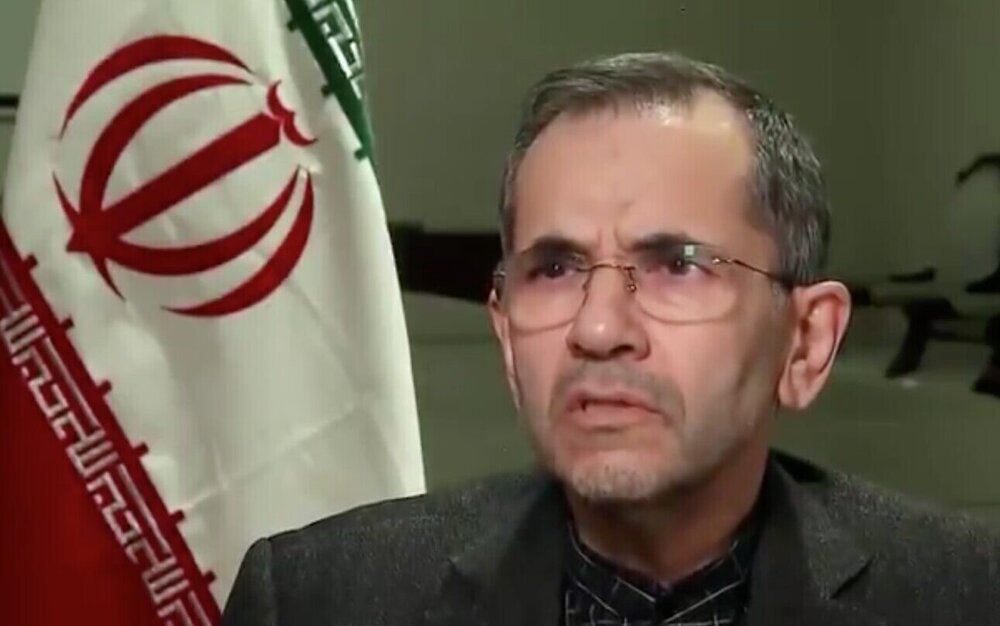Iran terms as ‘unacceptable’ any proposal to revise, renegotiate or extend JCPOA

TEHRAN – Majid Takht-Ravanchi, Iran’s ambassador to the United Nations, has rejected as “unacceptable” any proposal to revise, renegotiate or extend the 2015 nuclear pact as contrary to UN Security Council resolution 2231.
The ambassador made the remarks during a meeting of the UN Security Council on “Non-Proliferation: implementation of Security Council resolution 2231 (2015).”
“Almost four months after the failed United States’ move to destroy the JCPOA, the Security Council is again considering the implementation of resolution 2231 and the JCPOA,” Takht-Ravanchi said.
“The JCPOA is an agreement coming out of hard-won negotiations involving difficult gives and takes, and any proposal for its revision, renegotiation or extension will be against resolution 2231 and absolutely not acceptable to Iran,” he pointed out.
He explained that after its withdrawal from the JCPOA on May 8, 2018, the U.S. re-imposed all its nuclear-related sanctions, and since then, by pursing a hostile policy towards the JCPOA and Iran, has conducted persistent widespread public and private harassment of Iran’s business partners.
By so doing, Takht-Ravanchi continued, the U.S. has committed multiple cases of “significant non-performance” under the JCPOA and as such is in continuous systematic material breach of its legal obligations under resolution 2231, the UN Charter and international law.
“Likewise, by brazenly threatening other States to either violate resolution 2231 or face punishment, the U.S. has not only failed to honor its own commitments under that resolution, but has also substantively obstructed the implementation of commitments by other Member States.”
“The U.S. has also defied the unanimously issued order of the International Court of Justice on 3 October 2018, which includes an obligation to remove impediments to humanitarian trade with Iran,” he added.
The Iranian envoy pointed out that instead of taking any remedial measures authorized in the JCPOA, Iran, upon the E3’s request, exercised restraint and strategic patience for one year.
He said Iran’s maximum restraint was responded to with the so-called “maximum pressure” of the U.S. and its ever-increasing unlawful sanctions as well as the utter failure of the E3/EU to implement their commitments.
“This left us with no choice but to take certain remedial steps in full conformity with the JCPOA’s paragraphs 26 and 36, according to which, in case of ‘a re-introduction or re-imposition of the sanctions’, Iran has the right ‘to cease performing its commitments …in whole or in part’,” Takht-Ravanchi remarked.
“Therefore, Iran’s steps are in full accordance with our rights and commitments under the JCPOA, and more importantly, are completely reversible,” he said. “However, the damages and sufferings inflicted upon Iran are almost absolutely irreversible.”
Takht-Ravanchi quoted U.S. officials as saying that the objective of the sanctions is the “starvation” of the Iranian people through weaponizing food and medicine, which is prohibited even in wartime.
Sanctions prevent the import of humanitarian goods, including vital medicines and medical equipment needed for patients particularly those with rare or complicated diseases, he said, adding that at a time when Iran is experiencing one of the worst outbreaks of COVID-19, sanctions are drastically hindering the country’s national response to the pandemic.
U.S. lies that humanitarian goods are exempt from sanctions: envoy
“The U.S.’s claim that humanitarian goods are exempt from sanctions is an absolute lie. As an example, even today, we cannot easily import medicine for relieving the breathing problems of those injured by chemical weapons which were provided by some Western countries to Saddam and used by him during his aggression against Iran.”
“The U.S. also claims that sanctions are ‘not directed at the people of Iran’. This is also a sheer hypocrisy as sanctions target the most vulnerable people the most, harm the poor more than the rich, the ill people more than the healthy ones, and infants and children more than adults,” Takht-Ravanchi stated.
He maintained that sanctions do not merely create economic hardships, but in many cases, they claim the innocent lives of people from all walks of life.
By any measure, the U.S. sanctions are illegal, illegitimate, immoral, inhumane and oppressive, and have no designation other than economic terrorism and crime against humanity, the ambassador declared.
Pointing to the assassination of Iran’s top anti-terror general Qassem Soleimani almost a year ago, Takht-Ravanchi said the assassination was a living example of the United States’ bankrupt policy. This terrorist act, conducted at the direct order of the U.S. president, is a gross violation of international law, he pointed out.
“There are also serious indications that the assassination of Martyr Fakhrizadeh, a prominent Iranian scientist, on 27 November 2020, was conducted by the Israeli regime--the closest regional ally of the United States with a long dark record of such terrorist acts against the Iranian nuclear scientists in the past,” he added.
Elsewhere in his remarks, the Iranian ambassador repeated Iran’s stance on returning to the JCPOA commitments, saying as soon as all JCPOA participants start implementing their commitments unconditionally, effectively and in full, Iran will also resume implementing all its JCPOA commitments.
“This has always been our principled position throughout the recent years and now it has become a binding legal obligation for the government following the recent adoption of a new law by our Parliament,” he said.
Takht-Ravanchi also called on regional countries to engage in good faith and work toward the establishment of a better, safer and more prosperous region.
“Our Hormuz Peace Endeavor (HOPE) is a recipe for bringing regional countries closer to each other with the aim of resolving their differences and establishing friendlier relations among them. We hope that our honest and sincere call for opening a new page in regional cooperation will be heeded by our neighbors in the Persian Gulf soon,” he said.
“Finally, our observations on Secretary-General’s report are contained in my letter already sent to the Council covering our views on issues that I did not address in my remarks today,” he concluded.
MH/PA
